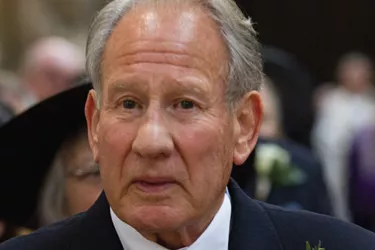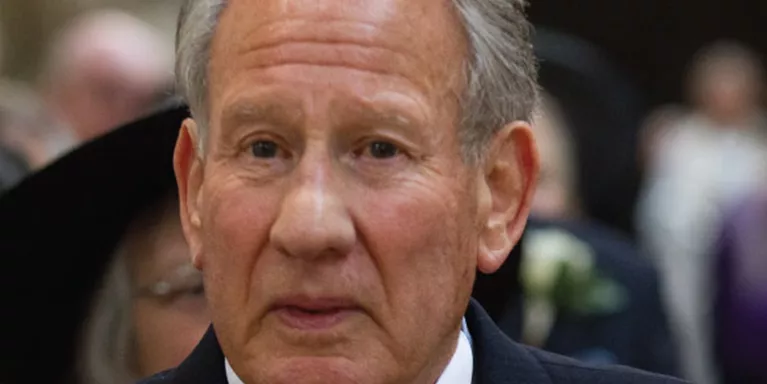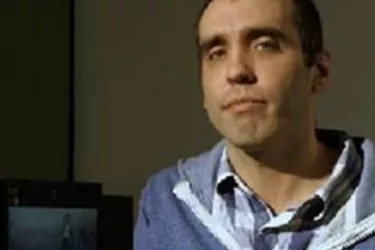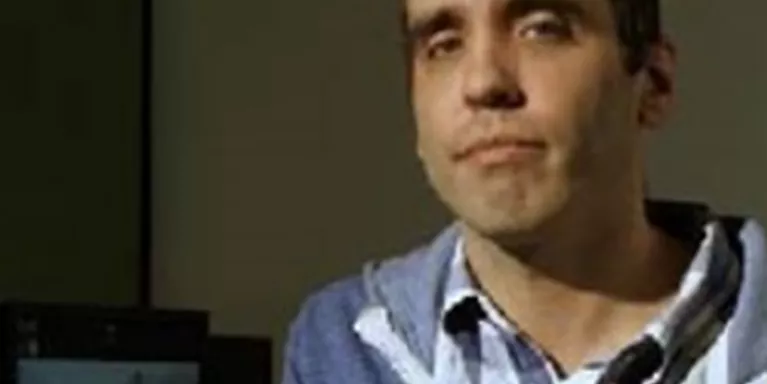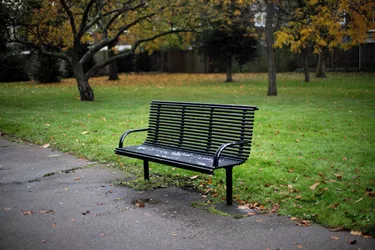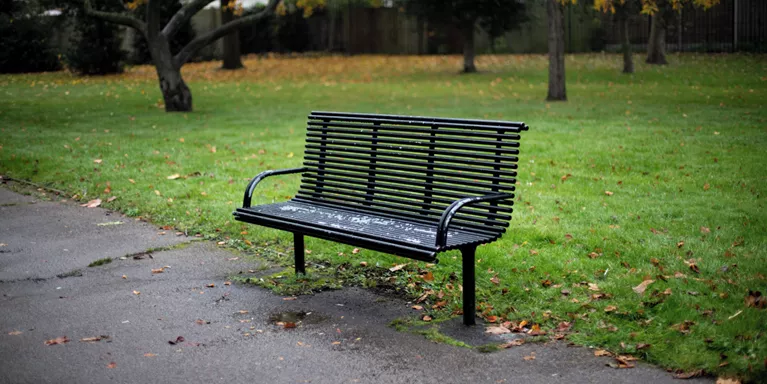My journey through grief
Chris was suicidal after his wife died. But here he blogs about how he learnt to start living again.
I’ll never forget the words of the consultant radiologist.
“Your wife has Friedreich’s Ataxia. It’s very rare genetic disorder of the brain.”
I remember Anne asking him, “is it curable? Is it life threatening?” The stark response was “I’m afraid there is no cure, and you have about 10 years before the disease progresses to a stage where you can expect your brain to stop functioning.”
I was speechless; she would be dead by the time she was 60.
“Not a word to anyone,” Anne said, forcefully. “Not to my parents, not our daughter, not anyone.”
I wondered how I could keep a secret of this magnitude to myself? But until the last stage before she died, Anne and I kept our stiff upper lip approach, and never opened up to anyone. I now understand, thanks to therapy, that this was a terrible mistake that just made the situation harder, both mentally and emotionally.
Losing my wife after 38 wonderful years, had a great impact on my wellbeing.
Seeing Anne deteriorate from this terrible disease for 10 years, and then losing my wife after 38 wonderful years, had a great impact on my wellbeing.
I think I was particularly unable to cope because of earlier trauma I had experienced. In a session with a psychologist some years later, he asked me about my childhood. I told him that my mother had sent me away from South Africa when I was 12 years old, to live in England with my father. The psychologist suggested that my wife had taken on, in my eyes, the role of a mother to me, as well as a wife. Losing Anne was like losing a mother again – a double blow.
As Anne’s illness worsened, our house became more like a nursing home – a revolving door of doctors, carers and therapists, and I became a stranger in my own house.
I became a carer 24/7, and my mental health got worse as I saw the extent of Anne’s suffering. I knew how difficult it would be for me to be left alone.
My body was racked with pain from the physical demands of caring for Anne. My knees and shoulders were damaged from heaving Anne in and out of hoists, pushing the wheelchair, and lifting her up when she fell. The only release I could find was through going to the gym as regularly as I could. Later, after Anne’s death, I also found that exercise helped to lift some of the burden.
During her last six months, Anne suffered terribly, but she never complained. She could only swallow liquids, and reluctantly agreed to have a Peg fitted. This involved having a tube fitted to allow her to eat and take medication, bypassing the oesophagus as she could no longer swallow. The night before the procedure I went upstairs to pray for Anne. I returned to her room downstairs and the air felt different. I placed the back of my hand against her cool cheek. My Anne was gone.
I felt rudderless and abandoned. I tried counselling, but it was too early in my grieving process.
I then entered the most disastrous period of my life. I was 65, five years older than Anne when she died. All of my friends were gone and I felt rudderless and abandoned, with nothing to look forward to. I tried counselling, but it was too early in my grieving process. I was prescribed anti-depressants, but they didn’t work for me.
I didn’t realise at the time that you shouldn’t make life-changing decisions for many months after a loved one’s death. Instead, I sold our lovely home in Bath, and auctioned most of our precious belongings. Loneliness suddenly hit me. I’d lost my soul-mate for good, there was nothing to replace the void which engulfed me. It was like being in a log cabin with no neighbours for miles. I wanted to make contact but my depressed state of mind prevented me. I was frightened being alone with grief, there was no one who could help me, not even my daughter. I felt unwanted, the only way out was to escape. I tried and failed.
I wanted to be near the sea, to escape, so I moved to Dorset. I needed projects to keep me going, and felt unable to settle in the same house for very long. I moved five times in seven years. I bought a house in Spain, and sold it again. I was having therapy every week, but it didn’t seem to help the depression.
Eventually, the depression took hold of me - I couldn’t see a way out and wanted to end it all.
Then I heard a familiar voice “What are you doing, Chris? You stupid man. This isn’t the person I married. Think about Louisa, don’t abandon her as well." Her voice was so clear.
After hitting the depths of despair, I contacted a priest who knew about my mental state. She advised me to return to Bath and be near Louisa, our daughter.
After seven years in the wilderness, I tried to start again. I was diagnosed with clinical depression, and I found that the medication started to help. I continued with therapy, and slowly began leading a normal life.
I became a member of the Bath Abbey community again. I volunteered at Dorothy House hospice, supporting patients with dementia, motor neurone disease, suffering from a stroke or in remission from cancer. The hospice was where Anne enjoyed respite care. I started singing in a choir again, and taking regular exercise. Life started to look brighter.
After a church service I met Pauline. We are now happily married, and I feel blessed to have found love again.
Then one Sunday after a church service I met Pauline. In 2015, we got married – I was a young 78-year-old, and she was 55. I am now 83, and I feel blessed to have found love again. I can now open up and tell my story.
I am lucky. I know this. But I would like to share my story with others who, like I did, suffer from mental illness, or find themselves in troubled times. I felt compelled to put my experience down in words, and wrote my book, 'I’m fine, thanks', to help others through similar situations. I found the experience healing, as it allowed me to work through my experiences and reflect on my journey.
I hope my story shows that things can change, and that if you stay in the day, you can find the light at the end of the tunnel.


Information and support
When you’re living with a mental health problem, or supporting someone who is, having access to the right information - about a condition, treatment options, or practical issues - is vital. Visit our information pages to find out more.
Share your story with others
Blogs and stories can show that people with mental health problems are cared about, understood and listened to. We can use it to challenge the status quo and change attitudes.










